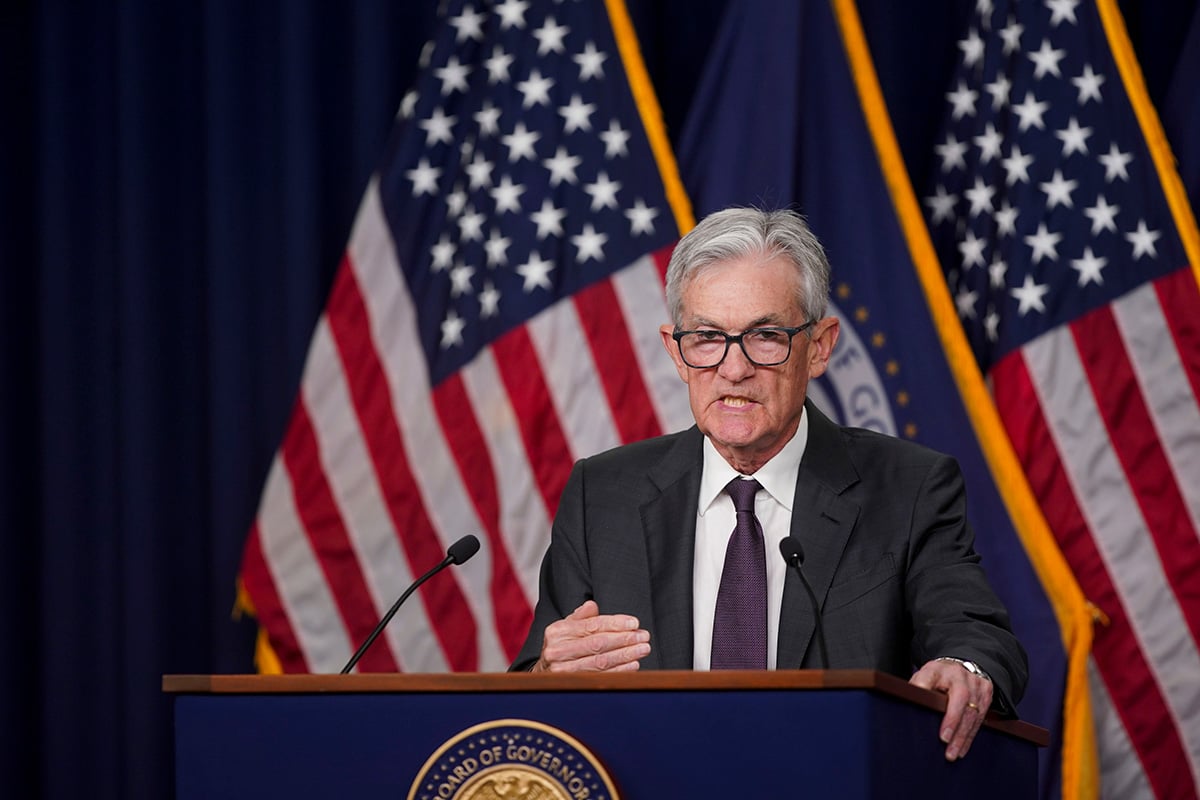California and New York, home to Silicon Valley and Wall Street, are preparing to write rules of the road for entrepreneurs driving a surge of interest in bitcoins and other virtual currencies.
The outcome could determine how big a threat bitcoins pose to established payment companies including JPMorgan Chase & Co. and Visa Inc. as well as where venture capital and talent converge to form a geographic hub for U.S. startups.
“If a state becomes bitcoin-friendly, it will see a huge increase in companies,” said Adam Ettinger, an attorney with San Francisco-based Strategic Counsel Corp., which advises technology investors. “That will mean the brightest minds working on some of the most innovative payment technology we've seen in awhile.”
Bitcoin, a five-year-old protocol for issuing and moving money across the Internet, has gained traction with merchants selling everything from Sacramento Kings basketball tickets to kitchen mixers on Overstock.com. Venture capitalists see promise in it as an alternative to the global payment system currently dominated by companies including Visa, Western Union Co., and large banks.
Bitcoin's legal status has been uncertain. In March, the U.S. Treasury Department's Financial Crimes Enforcement Network, which polices money laundering, said virtual-currency firms may be regulated as money transmitters. The move set off the race among states, which license such firms, to determine if and how their laws apply.
Regulators and law enforcers have expressed concern that bitcoins could facilitate money laundering and sales of drugs and other illegal goods.
Federal prosecutors in New York today indicted the head of a digital currency exchange company on charges of conspiring to launder more than $1 million in bitcoins tied to Silk Road, an online drug bazaar. Charlie Shrem, the chief executive officer of BitInstant, is also the vice chairman of the Bitcoin Foundation, the group that oversees the currency's software protocols and lobbies regulators. In October, U.S. authorities shut down Silk Road and arrested its operator for hosting illegal transactions.
Money Transmitters
Stephanie Newberg, president of the Money Transmitter Regulators Association, a group of state officials, said bitcoins will dominate her association's agenda precisely because its legal status is unclear.
“Some states have statutes that are broad enough to do it immediately,” said Newberg, who is also deputy commissioner of banking in Texas. “Other states don't. It's a state-by-state question.”
JPMorgan Chief Executive Officer Jamie Dimon has said he expects that bitcoins will be less of a threat once regulators intervene.
Bitcoin “will eventually be made as a payment system, I think, to follow the same standards as the other payment systems, and that will probably be the end of them,” Dimon said Jan. 23 in an interview on CNBC.
Bitcoin was introduced in 2008 by a programmer or group of programmers under the name Satoshi Nakamoto. It has no central issuing authority, and uses a public ledger to verify encrypted transactions.
Successful virtual currency startups will have to commit to being regulated by the states, said Fred Ehrsam, chief executive of Coinbase in San Francisco, a company that helps users buy and sell bitcoins.
“We think California and New York will set the tone for everything else,” Ehrsam said. “When that tone is established, we're ready to hand in licensing applications immediately.”
Different Approaches
California and New York have so far adopted different approaches. New York's superintendent of financial services, Benjamin Lawsky, moved publicly against Bitcoin startups last year, issuing subpoenas for information on their business, a move the companies complain has forced them to spend seed capital on lawyers. Tomorrow Lawsky is scheduled to convene two days of public hearings to consider whether New York should establish what he has called a “BitLicense.”
By contrast, officials in California have been quietly meeting with lawyers and compliance experts for advice before making public moves, according to a person advising bitcoin-related companies who asked not to be identified because the meetings were private.
Patrick Murck, general counsel of the Seattle-based Bitcoin Foundation, a group that promotes the use of digital currency, pointedly complimented California on its approach during a U.S. congressional hearing.
“We believe a healthy and respectful dialogue between key stakeholders will help ensure that the substantial benefits of the digital economy are met, while mitigating many of the risks,” Murck said at the hearing on Nov. 18.
California law requires companies that transmit monetary value to obtain licenses from its Department of Business Oversight, spokeswoman Alana Golden said. Its lawyers are currently weighing whether companies that only transmit a digital currency fall under this definition, Golden said.
'In Flux'
Bitcoin-related businesses are free to apply for a money transmitter license, but Golden cautioned against it.
“At this point, we're not advising the virtual currency companies to apply for licenses,” Golden said. “There's too much in flux now.”
New York is home to Union Square Ventures, which has invested in bitcoin-based startups, and Barry Silbert, the chief executive of SecondMarket, who runs a personal fund devoted to virtual currency companies.
California, and in particular Silicon Valley, is home to many virtual currency startups as well as the largest investment to date, $25 million, in Ehrsam's Coinbase. Andreessen Horowitz, the Palo Alto-based venture capital firm that led the investment, has said it wants to use bitcoins to build a new payments system. Bloomberg LP, the parent company of Bloomberg News, is an investor in Andreessen Horowitz.
New York law requires a license to receive a customer's money for transmission, as a company such as Western Union might do. It also requires a license to issue payment instruments, such as money orders.
Legal 'Gap'
Marco Santori, a lawyer with Nesenoff & Miltenberg LLP in New York who advises virtual-currency startups, said companies that receive money from a customer to convert into bitcoins may not fall under that law, since the funds aren't being transmitted. Since “money” isn't defined in the law, New York may not have jurisdiction, he said.
“These laws are nowhere near what they'd need to be to regulate bitcoin businesses,” Santori said.
As a result, Lawsky's department is considering use of its “gap authority” to regulate virtual currencies, according to a person briefed on the discussions. This authority, included in the law that created the department in 2011, allows it to regulate financial services not otherwise covered by state law.
Companies including New York-based Union Square Ventures have met with staff for Senator Charles Schumer, a New York Democrat, to press their case for creating a bitcoin-friendly regulatory environment, according to a person familiar with the discussions. Union Square, headed by Fred Wilson, contributed $51,500 to Democratic candidates and organizations in the 2012 election cycle, according to the Center for Responsive Politics.
Lawsky, who was previously chief counsel to Schumer, has said he is mindful of the effects of regulation on what could be an emerging industry.
“We want New York to be a place where these companies are coming and thriving, and at the same time, put in the rules of the road and protections to ensure we don't have money laundering,” Lawsky told CNBC on Jan. 10.
Complete your profile to continue reading and get FREE access to Treasury & Risk, part of your ALM digital membership.
Your access to unlimited Treasury & Risk content isn’t changing.
Once you are an ALM digital member, you’ll receive:
- Thought leadership on regulatory changes, economic trends, corporate success stories, and tactical solutions for treasurers, CFOs, risk managers, controllers, and other finance professionals
- Informative weekly newsletter featuring news, analysis, real-world case studies, and other critical content
- Educational webcasts, white papers, and ebooks from industry thought leaders
- Critical coverage of the employee benefits and financial advisory markets on our other ALM sites, PropertyCasualty360 and ThinkAdvisor
Already have an account? Sign In Now
*May exclude premium content© 2025 ALM Global, LLC, All Rights Reserved. Request academic re-use from www.copyright.com. All other uses, submit a request to [email protected]. For more information visit Asset & Logo Licensing.





